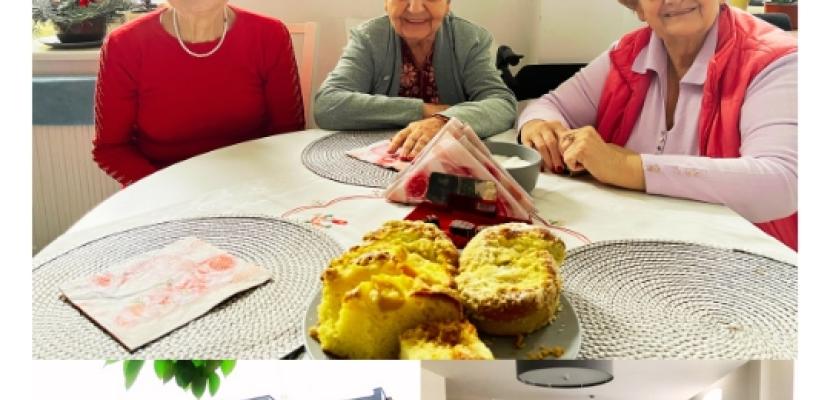
Cohousing apartment for women 60+ - lonely residents of Rybnik in Poland

About this good practice
The Rybnik addressed problems: air quality and energy efficiency in a coal based region by thermomodernization of an old building for elderly women living alone in large houses with high energy bills, financial burdens, and social isolation.
The historic building underwent deep modernization with custom-designed residential modules to and become more energy-efficient, less emissive and improoved air quality. It was divided into apartments for social housing, including one for elderly women. These women voluntarily applied to the program and received support from a professional psychologist. 4 new tenants moved into a renovated apartment adapted for people with disabilities, sharing a living room, bathroom, kitchen, and two two-person rooms. Sharing household expenses and resources (such as heating, water, and electricity) reduces their individual living costs and significantly mitigates their energy poverty.
Thanks to the building’s location, the seniors got involved in the community, attending the nearby Senior+ Day Care Center and receiving regular visits from Social Welfare Center workers. Alumni from the “Home for Mothers with Children” also live in the building and help the seniors with small tasks like groceries and cleaning. This arrangement decreased their overall living expenses.
The main stakeholders are the Rybnik Municipality Government, Rybnik Housing Management Facility, and Social Welfare Center in Rybnik. The main beneficiaries are the senior women.
Resources needed
The thermomodernization of the building, divided into 6 social housing apartments (1.4 mln EUR). Furnishing and adapting the apartment (14000 EUR). Stakeholders include Rybnik Municipality, Social Welfare Center, and alumni from “Home for Mothers with Children.”
Evidence of success
The practice effectively mitigates energy poverty for elderly women living alone in large houses. They now enjoy companionship, community support, and lower living costs. The building’s energy efficiency improvements (thermomodernization, new heating, air recuperation) enhance air quality and life quality, reducing expenses for residents and the Social Welfare Center. Monthly living cost for 4 seniors: 253.50 PLN (59 EUR) vs. 6663.57 PLN (1550 EUR) in a nursing home.
Potential for learning or transfer
Multiple issues: Tackles air quality, energy efficiency, energy poverty, and social isolation among seniors.
Focusing on vulnerable groups: Targets elderly women in large, expensive houses, reducing energy poverty and social isolation, and decreasing expenses.
Collaboration between stakeholders: Involves government, housing management, social services, and the community, ensuring success and sustainability.
Cost-effectiveness: Demonstrates significant savings compared to nursing homes, incentivizing adoption in other regions, especially with a growing number of lonely elderly people.
Project dependency on specific context like a suitable building, existing social services, and community support.
Funding and resources: Requires similar levels of funding and commitment from local governments and institutions, which might be challenging.
Scalability: Initial scale was small (4 seniors). Scaling up to serve a larger population might need adjustments and additional resources.
Further information
Cohousing - a pilot project in Rybnik to support the fight against energy poverty
Website
Good practice owner
You can contact the good practice owner below for more detailed information.